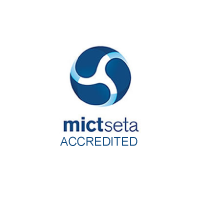Journalistic best practice while navigating a digital-first world
The media landscape has undergone drastic changes and more audiences are migrating to consume news on online platforms. This brings the industry many opportunities, but also comes with a unique set of challenges. Good journalism underpinned by solid ethics is still one thing that sets media practitioners apart from bloggers and casual content creators. Join award-winning journalist, Paula Fray, as she helps you navigate the key areas of journalistic ethics in an online world.
5 weeks online eLearning / 1 day training facilitated online or in person
Course overview
Citizen journalism is on the rise, and anybody with a smartphone and an internet connection now has the ability to create and share content with the world. But every blogger and social media poster is not a journalist. The main differences between you as a professional media practitioner and the next online content creator are good journalistic principles, solid ethics and a sound responsibility to the audience you serve.
A robust digital first-strategy is one way to ensure that you and your organisation retain and expand your audience. Social media is rife with opinions, unverified facts, misinformation and disinformation. Even the best news organisations have sometimes succumbed to online blunders and careless mistakes, and these can go viral within minutes. In a digital-first newsroom it’s sometimes easy for ethics and accuracy to take the back seat when competing with speed and sensationalism.
Unlike traditional media corrections, few people are likely to see your amendments or retractions.
Clicks might be the currency of the digital world, but with thousands of competitors, bloggers and content creators fighting for your audiences’ attention and the advertising revenue that comes along with it, we cannot forget that trust and credibility remain the currency of modern journalism. You can retain and grow your online audience by producing good, compelling content underpinned by solid journalism ethics and responsible, accountable reporting.
Some of the core ethical issues you may be faced with when taking your work online include commercial pressures, credibility, accuracy and the verification of facts, regulation, privacy, and news-gathering methods. The coursework will introduce you to theories of media ethics and help you navigate through practical dilemmas you might encounter when working online. During your training you will also learn a framework or schema to ensure your decisions are ethical and accurate. In this course, which includes an assignment and a final quiz, Paula Fray, will guide you through the key areas of journalistic ethics.
Outcomes and goals
- Theories of ethics
- Applying ethics in daily journalistic practice
- Balancing speed and ethics
- Understanding the difference between legal and ethical principles
- The public interest and the good of one versus the many
- Protecting sources and considering outcomes of your decisions
- Navigating ethical dilemmas
- Newsroom ethics case studies
Training facilitated online or in person
Real time individual and group learning with our media and communications professionals.
eLearning
Learn online at your own pace on our eLearning platform.
Address
fraycollege,
Technology House,
Greenacres Office Park,
Victory Park,
Johannesburg,
2195
Contact us

frayintermedia is a partner media organisation to fraycollege which helps businesses and organisations to thrive in the media space. Find out more.
View our privacy policy




